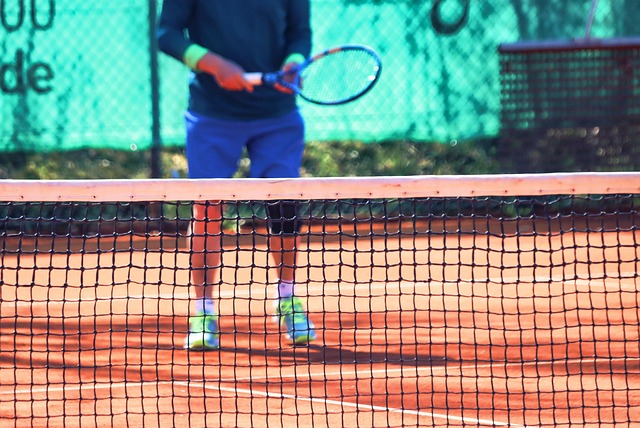Contempt law in Marion County disputes ensures court authority and fairness by penalizing willful violations of court orders. Understanding this law is crucial for all parties to maintain a respectful environment and navigate the complex legal framework effectively. Proving contempt requires demonstrating a willful violation, while courts hold significant discretionary power in sentencing. Knowledge of rights and defenses is key to facing contempt charges, with good-faith efforts towards resolution potentially leading to reduced accusations. Accurate documentation and adherence to judicial orders are essential to avoiding contempt issues in Marion County disputes.
Navigating contempt law in Marion County is a complex yet crucial aspect of resolving disputes. This article delves into the intricate world of contempt, providing insights on various facets. We explore the fundamentals and scope of contempt law, specifically focusing on Marion County’s legal framework. Understanding key elements of proof, burden shifts, and enforcement powers is essential for both plaintiffs and defendants. Real-world case studies from Marion County offer practical examples, guiding readers through this labyrinthine process.
- Understanding Contempt Law: Basics and Scope
- Marion County Disputes: Legal Framework Overview
- Proving Contempt: Elements and Burden of Proof
- Enforcement Powers: Court's Discretionary Options
- Defending Against Contempt Charges
- Case Studies: Real-World Marion County Examples
Understanding Contempt Law: Basics and Scope

Contempt law, a cornerstone of legal systems worldwide, encompasses a range of actions deemed harmful or disrespectful to a court’s authority and process. In Marion County disputes, understanding this law is paramount for all parties involved, as it dictates how conflicts within judicial settings are resolved. The scope includes deliberate acts like wilful refusal to comply with a court order, obstructing justice, or showing open scorn during proceedings.
At its core, contempt law serves to maintain decorum, ensure fairness, and protect the integrity of legal processes. It empowers courts to hold individuals accountable for their conduct, be it in civil or criminal matters. In Marion County, awareness of this law encourages respectful participation, fostering an environment conducive to just and efficient dispute resolution.
Marion County Disputes: Legal Framework Overview

In Marion County, disputes often navigate a well-defined legal framework that varies based on the nature of the conflict. Whether involving civil or criminal matters, understanding the local laws and procedures is paramount for all parties involved. For instance, civil disputes in Marion County typically follow a structured process, beginning with filing a claim at the appropriate court, which may be a county or circuit-level tribunal. This initial step sets the stage for subsequent hearings, mediation, and potentially trial, ensuring due process for all.
The legal landscape in Marion County is characterized by a robust system of contempt laws designed to enforce court orders and protect parties from dilatory tactics. Contempt proceedings can be initiated if one party fails to adhere to a court-mandated agreement or order. These cases demand careful navigation, as they require a strict adherence to established protocols, with the court upholding its authority through enforcement actions. Understanding this intricate web of legal procedures is crucial for anyone embroiled in a dispute within Marion County’s judicial system.
Proving Contempt: Elements and Burden of Proof

In Marion County disputes, proving contempt involves demonstrating a willful violation of a court order. The key elements include a valid court order, knowledge of the order, and a failure to comply with its terms. The burden of proof lies with the party alleging contempt, who must establish these elements beyond a reasonable doubt. This stringent standard ensures that only deliberate and intentional violations are punished, protecting individuals from false accusations.
The process requires thorough documentation and evidence. This can include court records, witness testimonies, and any relevant communications or actions related to the dispute. In Marion County, legal professionals play a crucial role in guiding clients through this intricate process, ensuring they understand their rights and obligations while presenting a compelling case to support or defend against contempt charges.
Enforcement Powers: Court's Discretionary Options

In cases of contempt, particularly in Marion County disputes, the court possesses a range of discretionary options to ensure compliance with its orders. These powers are instrumental in maintaining the integrity of legal proceedings and upholding justice. The court can issue various remedies, such as fines, imprisonment, or specific acts to be performed, depending on the nature and severity of the contempt. For minor infractions, a simple monetary fine may suffice, while more serious instances might warrant immediate incarceration.
The judge’s discretion allows for tailored responses, considering the unique circumstances of each case. This flexibility enables the court to balance the need for deterrence against the potential hardship on the contemnor. In Marion County disputes, where complex legal battles often ensue, an understanding of these enforcement powers becomes crucial for all parties involved, ensuring a fair and effective resolution process.
Defending Against Contempt Charges

When facing contempt charges in Marion County disputes, it’s crucial to understand your rights and available defenses. One common strategy is to demonstrate that you did not intend to violate any court orders. Intent plays a significant role in contempt cases; if the court finds that your actions were unintentional or based on a good-faith misunderstanding, the charges may be dropped or reduced. For example, if you believed in good faith that certain agreements or arrangements were no longer in effect, this could be used as a defense against contempt allegations.
Another effective approach is to present evidence of efforts made to comply with court orders. Showing proactive measures taken to resolve Marion County disputes and fulfill obligations can mitigate charges. This may include providing documentation of attempts to communicate with opposing parties, proof of attendance at mediation sessions, or records of financial transactions as ordered by the court. Such actions demonstrate a commitment to resolving the dispute while challenging the contempt accusations.
Case Studies: Real-World Marion County Examples

In the realm of Marion County disputes, understanding contempt law is paramount for both legal professionals and individuals embroiled in legal battles. Real-world examples from Marion County serve as vivid case studies, illustrating the intricate dynamics of contempt proceedings. These instances highlight the importance of meticulous documentation, clear communication, and adherence to judicial orders.
For instance, a recent Marion County case involved a custody dispute where one parent failed to adhere to the agreed-upon visitation schedule, leading to a charge of contempt. Through thorough legal analysis and presentation of evidence, the aggrieved party successfully demonstrated willful violation of the court order. This outcome underscored the significance of following procedural steps and the potential consequences of ignoring legal mandates in Marion County disputes.
